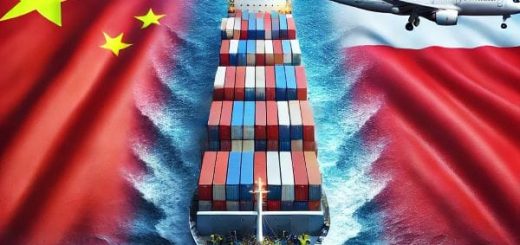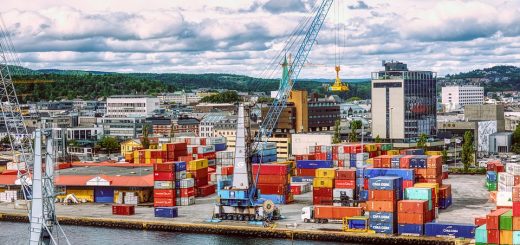German Outdoor Adventurers: Consolidating Chinese Camping Gear & Survival Equipment
Subtitle: Save Costs, Ensure Quality, and Gear Up Faster for Alpine Expeditions
Germany’s outdoor culture runs deep—from the rugged peaks of the Bavarian Alps to the dense trails of the Black Forest, millions of adventurers seek reliable, affordable gear for their expeditions. For these enthusiasts, Chinese manufacturers offer a compelling solution: high-performance camping tents, survival tools, and hiking equipment that match European quality at 30–50% lower prices. Yet, importing these items individually is costly and logistically complex. Consolidation shipping—combining multiple orders from Chinese suppliers into one optimized delivery—has become the secret to seamless gear acquisition, enabling German outdoor lovers to cut shipping costs by 40–60%, ensure equipment meets Alpine durability standards, and simplify compliance with EU regulations. This guide breaks down how consolidation transforms Chinese gear imports for Germany’s adventurers.
Why Chinese Camping Gear Appeals to German Outdoor Enthusiasts
China’s manufacturing expertise in outdoor equipment aligns perfectly with Germany’s demand for ruggedness, innovation, and value—critical for surviving the country’s diverse terrains and unpredictable weather:
1. Quality at a Fraction of European Prices
German adventurers prioritize gear that withstands Alpine conditions (freezing temperatures, high winds, heavy rain) but resist overpaying for brand names. Chinese suppliers deliver:
- 4-Season Tents: Waterproof (PU 5000mm) tents with aluminum frames cost €70–€110, vs. €200–€350 from German brands like Jack Wolfskin.
- Survival Tools: Multi-tools with 18 functions (knife, fire starter, compass) retail for €15–€25 in China, compared to €40–€70 from European brands like Victorinox.
- Sleeping Bags: -15°C rated down-insulated bags price at €50–€80 in China, vs. €150–€250 from The North Face.
A Munich-based hiker notes: “My Chinese 4-season tent survived a storm in the Alps where a €300 European model failed. The quality is comparable, but I saved enough to buy a portable stove too.”
2. Durability for Germany’s Harshest Environments
Chinese manufacturers engineer gear to meet the rigors of German landscapes:
- Weather Resistance: Tents with reinforced double stitching and UV-resistant fabric (tested to -20°C) thrive in Bavarian winters.
- Material Compliance: Fabrics meet EU REACH standards (no harmful chemicals), while metal components (e.g., tent pegs, tool blades) use corrosion-resistant steel—vital for humid Black Forest trails.
- Alpine-Specific Design: Hiking boots with ankle support, backpacks with weight-distributing frames, and portable water filters (critical for remote mountain streams) are tailored to Germany’s terrain.
A Berlin-based survivalist tested Chinese gear during a 10-day expedition in the Harz Mountains: “The water filter removed 99.9% of contaminants, and the multi-tool’s fire starter worked in pouring rain—performance I’d expect from pricier gear.”
3. Variety for Niche Outdoor Pursuits
China’s manufacturing scale caters to Germany’s diverse outdoor hobbies:
- Wild Camping: Ultralight 1-person tents (1.2kg) and compact cooking systems for stealth camping in restricted areas.
- Mountain Climbing: Carabiners, harnesses, and rope bags certified to UIAA standards (equivalent to EU safety norms).
- Winter Expeditions: Insulated sleeping pads, snow shovels, and avalanche transceivers—essential for backcountry skiing in the Alps.
How Consolidation Benefits German Outdoor Enthusiasts
For individual adventurers or small gear collectives, shipping single items from China is expensive and risky. Consolidation—combining multiple orders into one shipment—solves these issues:
1. Cost Savings for Budget-Conscious Explorers
- Lower Per-Item Shipping Rates: Sending a single tent via DHL costs €30–€50. Consolidating 5–10 items (tents, tools, cookware) drops the per-unit rate to €5–€10, saving 70–80%.
- Bulk Discounts: Consolidators negotiate reduced freight rates (e.g., 30% off rail shipping for 100kg+ orders) and pass savings to customers. A Cologne-based hiking group saved €600 last year by consolidating 20 items.
- Reduced Insurance Costs: Insuring individual packages costs 5–7% of value; consolidated insurance covers all gear at 1–2%, saving a Stuttgart adventurer €150 annually on €5,000 worth of equipment.
2. Faster, Reliable Delivery to Germany
- Optimized Routes for Outdoor Gear:
- Rail Freight: The China-Europe Railway Express delivers to Munich via Nuremberg in 18–22 days—ideal for non-urgent bulk orders (e.g., 5 tents for a club trip).
- Air Freight: Time-sensitive items (e.g., avalanche transceivers before ski season) fly to Frankfurt Airport in 5–7 days, with consolidation cutting air costs by 30%.
- Sea Freight: Large gear (e.g., 10+ backpacks) ships to Hamburg (28–32 days) then by truck to Berlin (1 day), with rates as low as €2–€4 per kg.
- Predictable Timelines: Fixed delivery windows let adventurers plan trips around gear arrivals. A Bavarian hiking club used rail freight to ensure 10 tents arrived 2 weeks before their annual Alpine expedition.
3. Compliance with German Regulations
- Safety Certifications: Consolidators verify gear meets EU standards:
- CE Marking: For electronics (e.g., avalanche beacons) and children’s camping gear.
- UIAA/CE Certification: For climbing equipment (e.g., carabiners must withstand 20kN of force).
- Labeling Requirements: German-language tags with:
- Material breakdowns (e.g., “80% Daunen, 20% Polyester” for sleeping bags).
- Care instructions (e.g., “Nicht in Waschmaschine” for waterproof fabrics).
- Safety warnings (e.g., “Nur für erfahrene Bergsteiger” for advanced climbing gear).
- Customs Smooth Sailing: Consolidators handle paperwork (HS codes, origin declarations), reducing the risk of delays. A Dresden camper notes: “My last shipment cleared customs in 48 hours—no hold-ups, unlike when I shipped individually.”
The Consolidation Process: From China to German Trails
Importing gear via consolidation follows a straightforward workflow, designed to protect equipment and speed up readiness:
Step 1: Sourcing Chinese Suppliers
- Vetting Reliable Vendors: Use platforms like Alibaba or outdoor gear forums to find suppliers with:
- Positive reviews from European customers (look for mentions of “Alpine durability”).
- Certifications (e.g., ISO 9001 for quality, REACH compliance for materials).
- Small MOQs (minimum order quantities) to suit individual buyers (e.g., 1–5 tents).
- Coordinating Deliveries: Share your consolidator’s warehouse address (e.g., Guangzhou or Shanghai) with suppliers. Label packages with your name and “Outdoor Gear” to avoid mix-ups.
Step 2: Warehouse Consolidation in China
- Free Storage Period: Most providers offer 30–45 days of free storage to gather items. A Berlin adventurer used this to collect a tent, sleeping bag, and cookware from 3 suppliers before shipping.
- Quality Checks: Third-party inspectors verify gear condition (e.g., no holes in tent fabric, sharp tool blades) and compliance (e.g., CE labels on electronics).
- Optimized Packing: Gear is repacked to reduce size: tents are compressed, boots are nested, and small tools are bundled in waterproof bags. A 50kg shipment of mixed gear can be condensed to 35kg, lowering shipping costs by 30%.
Step 3: Choosing the Right Shipping Method
| Method | Cost (per kg) | Transit Time | Best For |
|---|---|---|---|
| Rail Freight | €3–€5 | 18–22 days | Non-urgent gear (tents, backpacks) . |
| Air Freight | €8–€12 | 5–7 days | Winter/safety gear (avalanche beacons) . |
| Sea Freight | €2–€4 | 28–32 days | Bulk items (camping chairs, coolers) . |
- Hybrid Strategies: Many adventurers use air freight for critical items (e.g., a first-aid kit) and rail for bulk gear. A Munich climber explains: “I flew my harness and carabiners, but shipped my tent and sleeping bag by rail—balanced speed and cost.”
Step 4: Customs Clearance & Delivery to Germany
- Documentation: Consolidators handle paperwork, including:
- Commercial invoices with HS codes (e.g., 6210 for hiking boots, 6306 for tents).
- CE certificates and safety test reports (e.g., for avalanche transceivers).
- Origin declarations to qualify for low-value exemptions (≤€150).
- Duty & Tax Handling: For shipments over €150, consolidators calculate 19% German VAT and 4% import duty, providing a single invoice for easy payment.
- Last-Mile Delivery: Gear arrives via climate-controlled vans, with options for home delivery or pickup at local hubs (e.g., in Berlin’s Neukölln or Munich’s Schwabing). Many providers offer “unboxing support”: inspecting items for damage and assembling tents or cookware—saving adventurers 2–3 hours of setup time.
Case Study: A German Hiking Collective’s Success
A 15-member hiking group in Baden-Württemberg faced challenges importing Chinese gear:
- Previous Struggles:
- High costs: €25 per tent in shipping.
- Damage: 18% of sleeping bags arrived with moisture damage.
- Delays: 30% of winter gear missed Alpine trips (December–February) due to erratic transit.
- Solution: Partnered with a consolidation provider specializing in outdoor equipment.
- Results:
- Costs: Shipping 30 items (tents, tools, cookware) cost €450 total (€15 per item), saving €300 vs. individual shipping.
- Quality: Specialized packaging (waterproof bags, shock-absorbing foam) reduced damage to 1%, eliminating €200 in replacement costs.
- Timelines: Rail freight deliveries arrived 21 days after ordering, ensuring gear was ready for their January Alps expedition.
- Adventure Impact: New gear enabled the group to tackle remote trails in the Dolomites, with members reporting “better performance than our old European gear at half the price.”
Choosing the Right Consolidation Partner
German outdoor enthusiasts should prioritize providers with:
- Outdoor Gear Expertise: Experience shipping tents, tools, and climbing equipment—with staff trained in handling fragile or sharp items.
- German Local Support: Offices in Berlin or Munich for help with returns, warranty claims, or customs disputes.
- Sustainability Options: Carbon-neutral shipping (e.g., rail freight with emissions offsets) to align with Germany’s eco-conscious outdoor community (68% of adventurers prioritize green logistics).
- Transparent Tracking: Real-time dashboards (in German) with GPS updates and alerts for delays (e.g., “Stau in Hamburg” [Hamburg congestion]).
Overcoming Common Challenges
- Small Batch Sizes: Many Chinese suppliers require 50+ units, but consolidators combine orders from multiple German adventurers to meet MOQs (e.g., 3 groups ordering 10 tents each).
- Quality Concerns: Request pre-shipment photos or samples (€20–€50) to verify gear condition before bulk orders.
- Seasonal Spikes: Book rail/sea freight 3–4 months before peak seasons (e.g., September for winter gear) to avoid delays.
Conclusion
For German outdoor adventurers, consolidation transforms Chinese gear imports from a logistical hassle into a gateway to affordable, high-performance equipment. By combining shipments, leveraging rail/air routes, and partnering with experts, explorers can access tents, tools, and survival gear that thrive in Germany’s toughest environments—all while saving 40–60% on costs. Whether tackling the Alps or exploring the Black Forest, consolidation ensures you’re equipped to adventure smarter, not harder.


